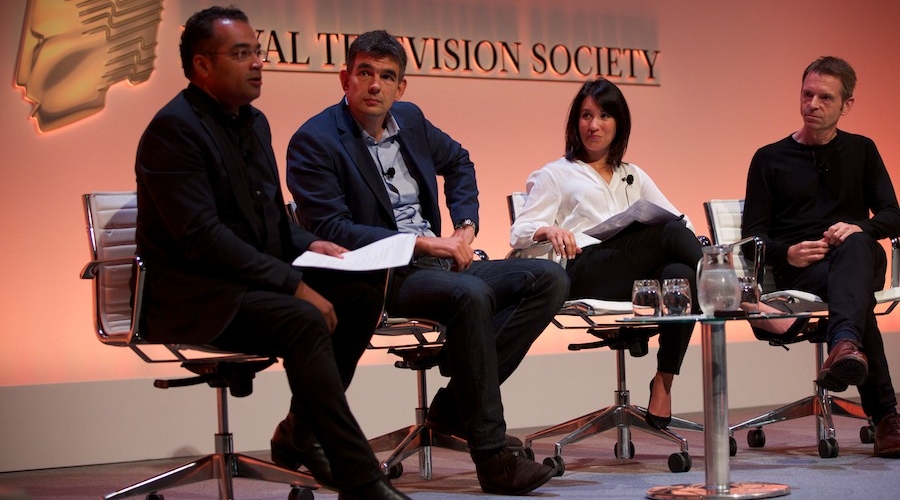Session One: International Keynote – Chase Carey – 21st Century Man
Chase Carey on...
...The Simpsons: SThe Simpsons is a show that is successful not just because of the breadth, depth and length of the series but [because] most people would say it’s probably the best written television series that’s ever been put forward.T
...content: "We are in the content business and certainly for us it begins and ends with creative content"
...Time Warner: SIn terms of Time Warner, I want to be clear we have moved on so if we’re talking about Time Warner I really don’t want to be revisiting something that is past or implying that we’re continuing to be engaged. The initiative of Time Warner was certainly about content and I think what motivated us to take the step we took to try to acquire Time Warner was really what we saw as an opportunity to create a company that would have a unique position of leadership and unique content and brands.T
...his relationship with Murdoch: SI’m very happy with my position with the Murdochs. They’ve been great partners. Rupert’s been fabulous to work with and I don’t think I need a Murdoch last name to enjoy what I do.T
...what keeps him awake at night: SIt’s a long list! We’re clearly in a business that is going in a transition, going to be transformed by digital technologies and the digital forces that emerge… We need to be aggressive, take appropriate risks, make appropriate investments, figure out how to reposition our product and brands in these emerging digital market places.T
...David Abraham's MacTaggart Lecture criticising American investment in British companies: SIt isn’t a reflection of how we’re approaching [American investment in British companies] and I think what we’re looking to bring to the market. I think what we hope to bring is an ability to help businesses to be more vibrant, stronger. I think every place we’ve gone around the world we’ve been a force for creating more and better content.T
Session Two: The Future You Don’t Want To Face
Krishnan Guru-Murthy, Channel 4 News, chaired a debate between Matt Brittin, President, Northern and Central Europe Operations, Google, Karla Geci, Head of International Media, Facebook and Kevin Sutcliffe, Head of News Programming EU, VICE News.
Karla Geci: SWe have yet to alter the paradigm of time so while there’s still 24 hours in a day, and it doesn’t look like we can change that anytime soon, what is changing is access points. When we look at behaviour on Facebook, with the average person checking in on Facebook about 14 times a day, how is that happening? That is in large part due to access points increasing, so why are we not seeing this as an opportunity to reach this elusive demographic?T
Kevin Sutcliffe: SWhat’s out there is an enormously engaged audience that is very sophisticated and that wants to be spoken to in ways that they’re not currently spoken to.T
Matt Brittin on BBC 3: SIt's an 'and' game: you want to be on this platform and that platform and the other platform. You want to be where the audience [is[… The main thing I would commend people to do is experiment. Don’t close yourself off from one platform. We’re in a world where people have got choiceT.
Matt Brittin: SI think one of the things that gets in the way is your use of the word television to refer to the device and the content. We should stop that and just talk about the big box and the small box, and focus on making great content.T
Kevin Sutcliffe: SAre we a breaking news show? No, we are VICE News and what we are is our take on the world [and] how we see the world. We are a content originator."
Session Three: Tomorrow The World
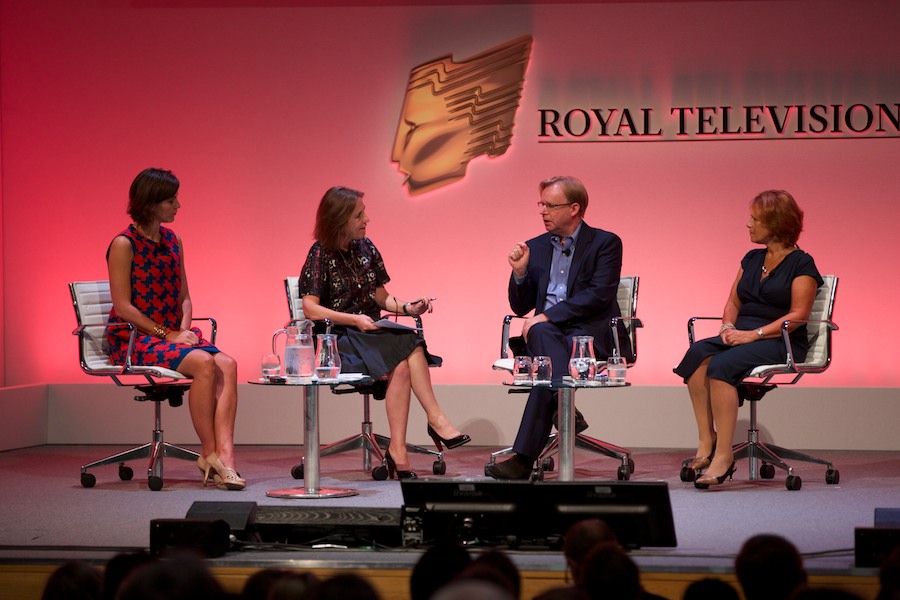 (L-R)Alex Mahon, Kirsty Wark, Kevin Lygo and Lorraine Heggessey (Credit: Paul Hampartsoumian)
(L-R)Alex Mahon, Kirsty Wark, Kevin Lygo and Lorraine Heggessey (Credit: Paul Hampartsoumian)
Kirsty Wark, broadcaster and journalist chaired a discussion between Lorraine Heggessey, Kevin Lygo, Managing Director, ITV Studios and Alex Mahon, Chief Executive Officer, Shine Group.
Alex Mahon: SAs indies - no matter what your size - you’re getting less money to make the same show. At the same time, from an audience perspective, the expectation of what you’re going to look at on screen has gone up.T
Lorraine Heggessy: SCreative people are now realising they have power. They’re realising that it is possible to grow a company from nothing to something that’s of value over a period of time. And often they can have more creative freedom if they run their own company."
Alex Mahon: SChannel 4’s strategy seems to be, from a completely unemotional analysis, to punish the big indies by giving them worse deals.T
Kevin Lygo: SI don’t know that any of us would say that we’ve had an idea turned down by the BBC that we’ve pitched to them because of an in-house quota. I’ve never known that happen and I don’t think it does, so I don’t really think it makes an enormous difference to us.T
Kevin Lygo: SThere’s an obsession with the ownership of rights when in many cases the value of the rights is not as much as people might think.T
Session Four: Kingdom Not United
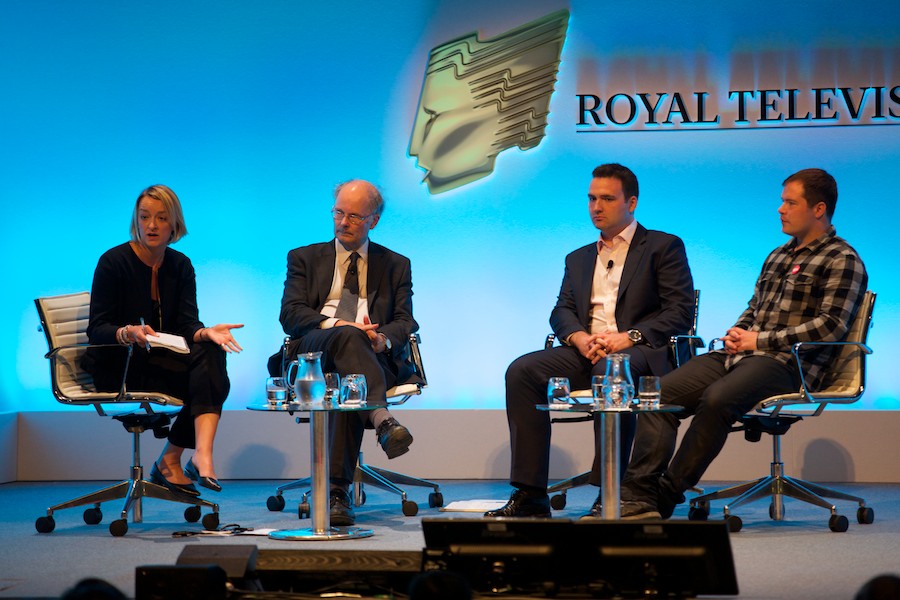 (L-R) Laura Kuenssberg, John Curtice, Gregor Poynton and Ross Colquhoun (Credit: Paul Hampartsoumian)
(L-R) Laura Kuenssberg, John Curtice, Gregor Poynton and Ross Colquhoun (Credit: Paul Hampartsoumian)
Laura Kuenssberg, Chief Correspondent & Presenter, Newsnight chaired speakers Ross Colquhoun, Director, National Collective, John Curtice, Professor of Politics, University of Strathclyde and Gregor Poynton, Associate Director (International) Digital, Portland Communications.
John Curtice: SThe curious thing that happened on Sunday [7 September 2014] was that the 51% on Sunday was not the result of one single poll. YouGov had done a sequence of polls during the last month and poll after poll showed an increase so it wasn’t obviously an oddball.T
Ross Colquhoun: SIt’s unusual to go to a nightclub in Edinburgh and at 3am find people talking about politics and not fighting with each other; they’re actually having an intelligent conversation!... People are more likely to listen to somebody who they know.T
Gregor Poynton: SPeople are always looking for the silver bullet or the one tweet that wins the election. The truth is it’s never that. It’s a collection of lots of little things that build up to a larger thing. In politics, the digital treatment is message, money and mobilisation.T
John Curtice: STwo-thirds of people in Scotland say they have had conversations in recent weeks with somebody else about the referendum. In that sense, traditional face-to-face contact is still the dominant mode. Behind it is that you can begin to organise and mobilise things through social media.T
Ross Colquhoun: SIf this debate was just about Alex Salmond we would lose. The reason I’m saying that is because he’s a talented leader, he’s a talented guy, but he’s really divisive and if people were just voting on the basis of voting for the SNP or voting for Alex Salmond we wouldn’t be in the position we’re in right now.T
Session Five: Have I Got News For You?
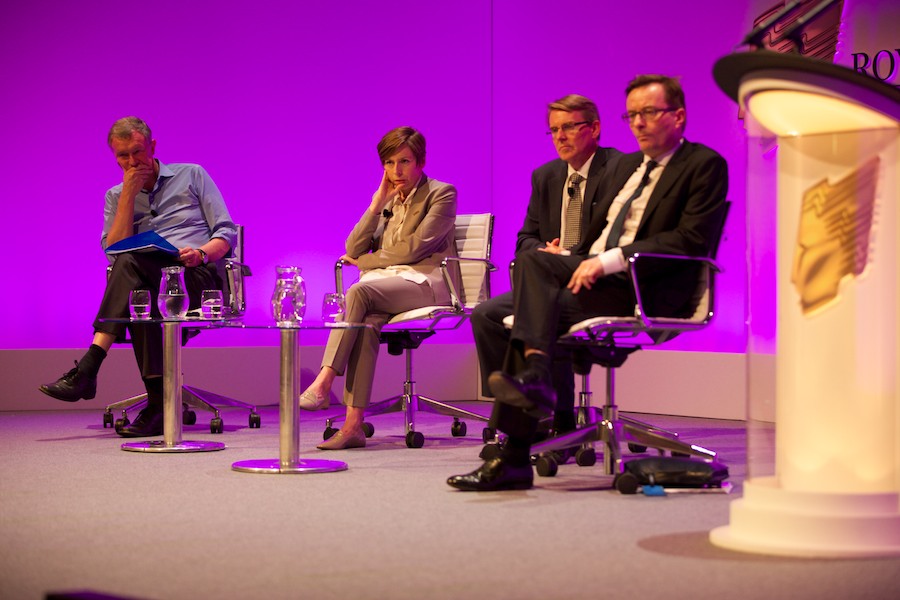 (L-R) Stewart Purvis, Fran Unsworth, John Hardie and John Ryley (Credit: Paul Hampartsoumian)
(L-R) Stewart Purvis, Fran Unsworth, John Hardie and John Ryley (Credit: Paul Hampartsoumian)
Stewart Purvis CBE, Professor of Television Journalism, City University chaired a debate between John Hardie, Chief Executive, ITN, John Ryley, Head of Sky News, BSkyB and Fran Unsworth, Deputy Director of News & Current Affairs, BBC.
Fran Unsworth: SWe’ve already [cut] £50m, I challenge you in the audience to say if you particularly noticed a diminution in the quality of the BBC News when we did the last £50m. It’s going to be tough, I’m not saying it’s going to be easy but I think the challenge is to do it in a way that the audience don’t notice. The fact that we’ve done it before gives me some kind of hope."
John Hardie: SITV News - and this is a choice for the broadcaster - lives in the reality of a commercial world and saying that because [the news] doesn’t roll all day long… is a ridiculous take on what we are actually doing. ITV and the other broadcasters live in that harsh [commercial] reality and very often when the news is big they will go open-end and they will go live, and we often supply that."
John Ryley: SAt the heart of a non-stop news organisation [such as Sky News]… we need the bedrock of the service of a 24 hour television channel that is supplying video…Yes it is expensive, but at the same time it provides news to our web, to our mobiles and the app.T
Fran Unsworth: SStories [such as the raid on Cliff Richard’s house] always give us problems…. If a reporter came to you and said ‘oh I’ve got this story that South Yorkshire Police are investigating a historic sex allegation against Cliff Richard and what’s more they’ve told me they are going to search his house tomorrow and they’ve even sent me aerial photograph of the house W do you think it’s up to me to say I don’t think we’ll tell the viewers about that because it’s not the sort of story the BBC does?’
John Ryley: [VICE News] have lifted the lid on the slightly seamier side of life in the UK which television news arguably doesn’t do enough of. I welcome VICE's entry into the journalism market and I think that it will sharpen our game. I suppose I like change and I like a bit of disruption.T
Session Six: Give Me Liberty
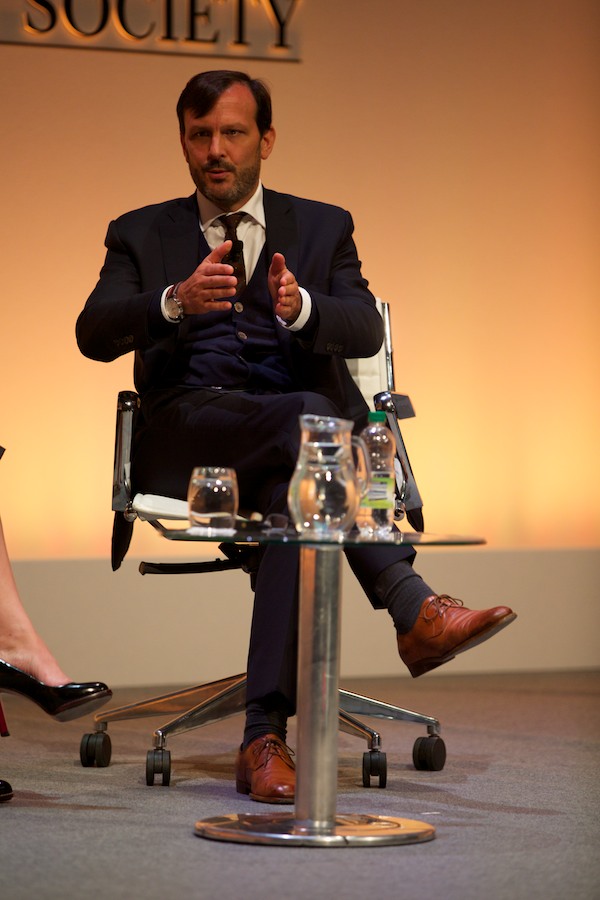 Jim Ryan (Credit: Paul Hampartsoumian)
Jim Ryan (Credit: Paul Hampartsoumian)
Jim Ryan on...
...defining Liberty Global: S[Liberty Global] is actually a big indie. As a matter of fact we’re a collection of 14 indies in 14 markets with different consumer preferences, languages, cultures so we’re very open to local content opportunities.T
...on future plans for Liberty Global: SWe’re not in the US [and] we’re not planning to go to the UST
...ITV: SWe have no current plans [to build on our stake in ITV]. For us, our ITV stake gets us a seat at the table in with the UK content discussion.T
...Virgin Media: SWe do want to find some portfolio investments we can use to enhance the Virgin Media acquisition.T
...retrasmission fees: SWe certainly don’t feel that the retransmission debate is something we should be supporting.T
Session Seven: Whose IP Is It Anyway?
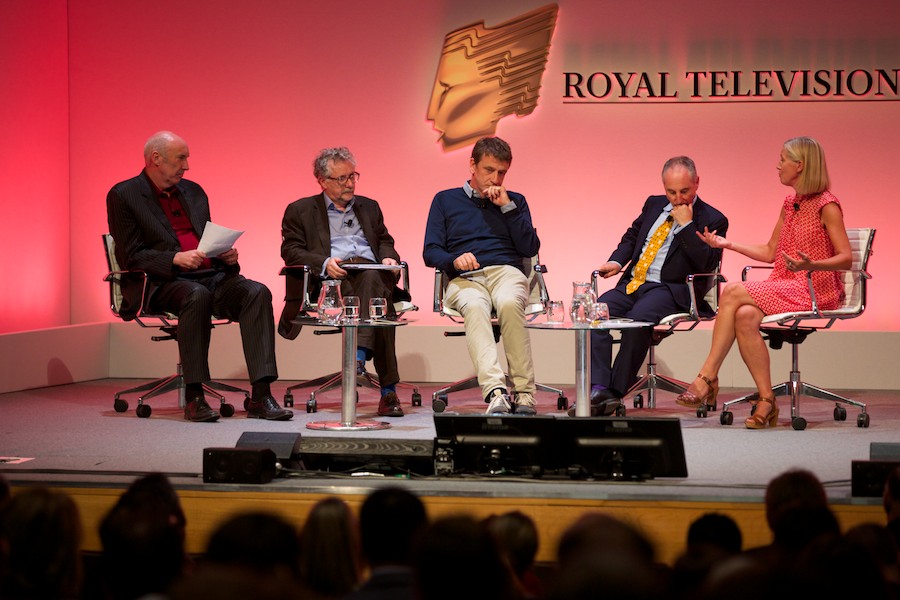 (L-R) Alex Graham, Martin Baker, Brian Elsley, Michael Foster and Liz Warner (Credit: Paul Hampartsoumian)
(L-R) Alex Graham, Martin Baker, Brian Elsley, Michael Foster and Liz Warner (Credit: Paul Hampartsoumian)
Alex Graham, Director, Big Eck Consulting chaired a debate between Martin Baker, Director of Commercial Affairs, Channel 4, Bryan Elsley, Writer of Skins and Dates, Michael Foster, Agent and Liz Warner, Chief Executive, betty
Brian Elsley: SI think agents have been very assiduous in the last ten years in carving out percentages of profits. At the bottom end (the entry level) of the writing profession, it’s very chancy and hard to make a living.T
Brian Elsley: SAt the middle and entry level of writers [of whom] there’s a high turnover of inside the industry on big, long-running shows, there is actually a skills gap and that skills gap emanates from the fact that people find it very hard to stay in the profession.T
Michael Foster: SI’ve never understood why directors in TV get paid as little as they do. It’s one of the great mysteries to me.T
Liz Warner: SIt’s a terrifying thing to own your own production company […] so good luck [to those who set them up]. Increasingly, we’re working with people who have set up a production company. But really it’s not a company, it’s just somewhere to hold their property and then we work with them and supply production.T
Martin Baker: S[In David Abraham's MacTaggart Lecture] he did say it’s been 12 years since the pre-runner of Ofcom (the ITC) ran its enquiry committee into the programme supply market in the UK, and whether there should be intervention and if so what for. [That was] quite a long time ago and a heck of a lot of things have happened in that period of time. He was saying it’s time to ask the question again: should it continue to do what it does, should it exist, and if it should continue to exist, what job should it now do looking forward rather than looking back?"
Session Eight: Future Of The BBC
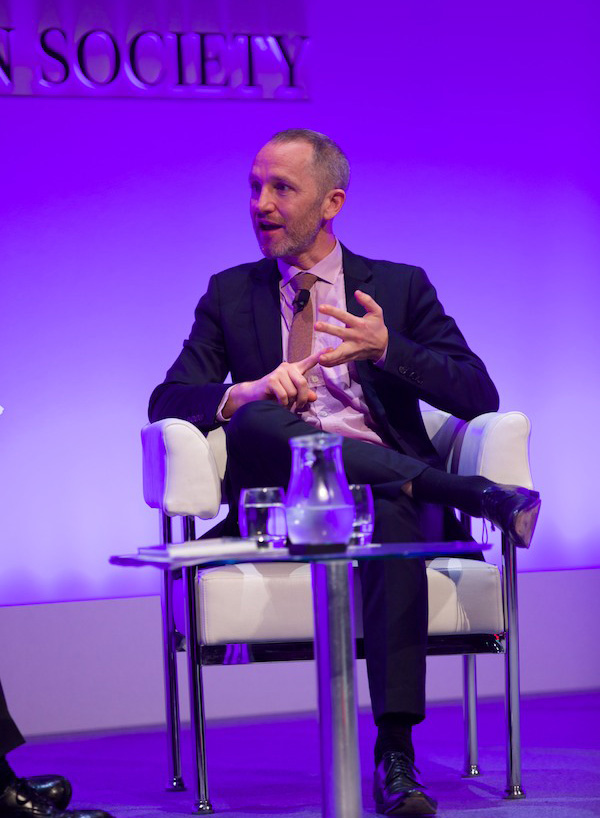 James Purnell (Credit: Paul Hampartsoumian)
James Purnell (Credit: Paul Hampartsoumian)
James Purnell on...
...the popularity of the licence fee: SSupport for licence fee is significantly up in this charter period [and] perceptions of value for money is also significantly up for this charter period.T
...the BBC: S[It's] is universal, independent [and] can provide good value for money because of the huge economies that come from the licence fee [and the BBC] has creativity and distinctiveness at its core.T
...the status of the licence fee debate: SIt used to be a very clear every five or ten years we’d have this discussion, but it feels more year to year now… It does feel coming back in and having been there in the 1990s that there is a little bit more of a sword of Damocles over us than there was.T
...how BBC plans to further monetise itself: SI can exclusively today reveal that we are looking at advertising, we are looking at download-to-own and subscription and that’s called UKTV and BBC Store.T
...BBC cuts: SWe’ve done some quite nifty scope cuts [quantity reductions] that people haven’t really noticed [but] actually there are some places where it might be starting to show: in Eastenders we cut that back too much and so we reinvested in the programme.T
Session Nine: Keynote – JB Perrette – The Voyage Of Discovery
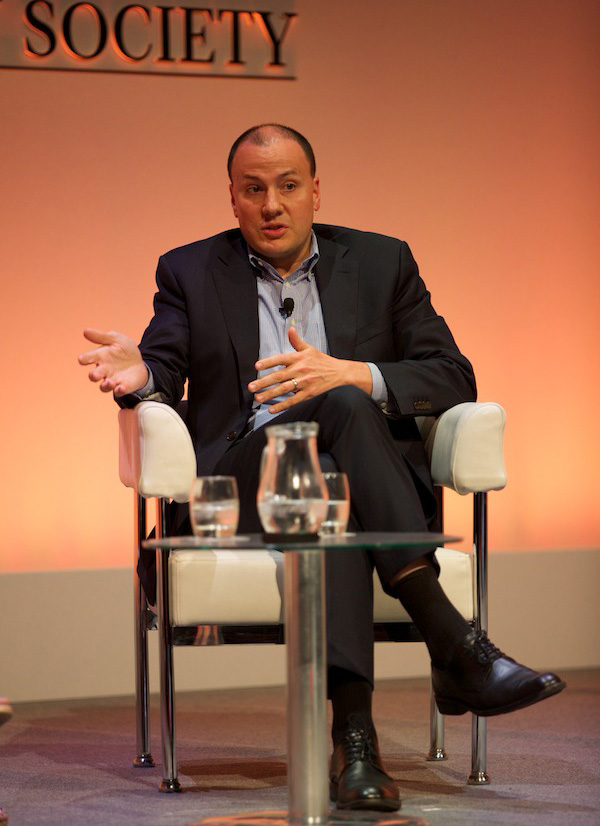 JB Perrette (Credit: Paul Hampartsoumian)
JB Perrette (Credit: Paul Hampartsoumian)
JB Perrette on...
...Discovery's status: S2014 marks a SwatershedT moment where for the first time our revenues and our business outside of the US have been bigger.T
...competition: SWe have more competition than ever before on the creative side; more competition from networks, both traditional television as well as online.T
...investing: SWe continue to believe that if you invest in good creative and invest in good content then you can find the viewer. We had 4% audience viewership of pay-TV in the US six to seven years ago. We invested $400m in content at that point. `we now invest $2bn in content and have an 11% share.T
...IP: SOwning IP is a key pillar for us, and diversifying that IP out of nonfiction [is important]… about 30% of what All3 does is also scripted. Having a stakeholder in a company that is doing scripted is valuable to us."
...Eurosport: SGetting into the Eurosport investment diversified us out of non-fiction into a different content genre that is much more real time and much more about big audiences and going live, which has a lot of value for us from a promotional standpoint and from securing more value vis-à-vis our distribution and advertising."
Session Ten: Keynote – Secretary of State
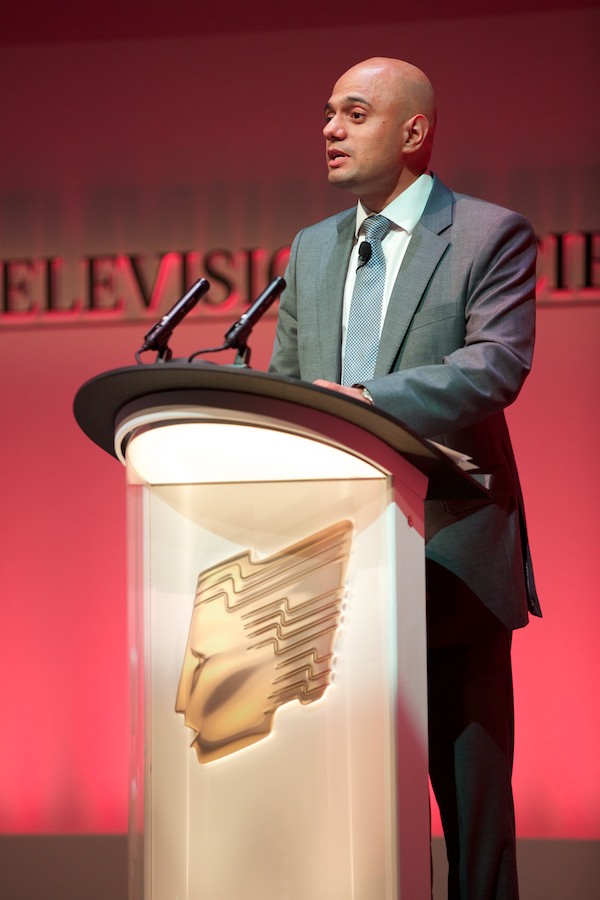 Rt Hon Sajid Javid MP (Credit: Paul Hampartsoumian)
Rt Hon Sajid Javid MP (Credit: Paul Hampartsoumian)
Sajid Javid on...
...being refused a Blue Peter badge during his trip to Salford last week: S[I was told] no badge for Saj.T
...American companies investing in British production houses: SThat’s a massive vote of confidence in the work you do W work that has had an incredible impact on the UK economy."
...on the new BBC Trust Chair: "I was absolutely delighted to recommend Rona Fairhead as our preferred candidate to be the new chairman of the BBC Trust. When I interviewed Rona it was clear that she is absolutely the best person for the job. Just before I came on stage I received a call from the chairman of the Culture, Media & Sport Select Committee, and he told me that her appointment had been approved unanimously by the committee."
...on decriminalising the TV licence: "Very shortly I will be publishing the terms of reference for a review of the TV licence enforcement. I expect it to begin taking evidence in the autumn, and to conclude early in the next Parliament. I don’t want to it pre-empt the Charter Review. I want to ensure that, when it begins, it has a solid evidence base on which it can draw. This will allow it to shape the future of the BBC in a way that works for both the Corporation and those who pay for it."
...on retransmission fees: SI think the correct way to do it is to have a proper consultation about payments and section 73, a consultation on the EPG, and then there’ll be that period where all stakeholders on all sides of the argument will have input. I don’t intend it to be part of the Deregulation Bill, I think we need to take our time to get it right.T
Session Eleven: Enabling The Next Generation
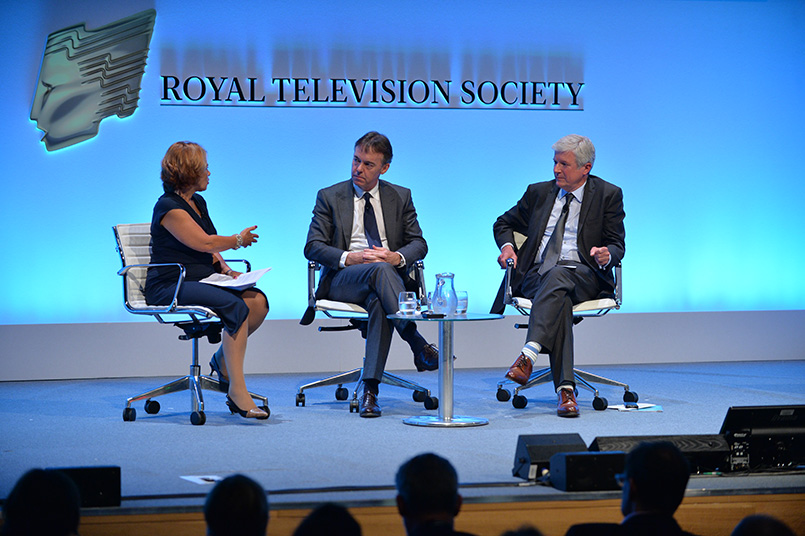 Lorraine Heggessey asked BBC Director-General Tony Hall (right) and Sky's Jeremy Darroch about their plans for supporting young talent (Credit: Richard Kendall)
Lorraine Heggessey asked BBC Director-General Tony Hall (right) and Sky's Jeremy Darroch about their plans for supporting young talent (Credit: Richard Kendall)
Lorraine Heggessey chaired a conversation between Jeremy Darroch, Chief Executive, BSkyB and Tony Hall, Director-General, BBC.
Tony Hall: SApprenticeships matter because it’s paid employment, it’s paid skills, it’s actually finding people from all sorts of backgrounds to come and work at our organisation.T
Jeremy Darroch: SWe should sweep more broadly [for talent] and we’ll get a much richer, diverse state of health.T
Tony Hall: SYoung people should all understand code and understand the importance of it. I think this is being addressed now.T
Jeremy Darroch: SI think if you wait for the system to change [in regards to coding] it’ll be too slow, so you’ve got to grab hold of that and do more yourself. Sky has its own software company now, which young people have joined directly from school. ..We’ve had something like 130 through the program and we still have 125 in the business today.T
Tony Hall: SYou have to have a culture where people feel that they can fail, that they can learn from that failure and then we all learn to move on. …You want to be in a culture which is invigorating, exciting and is supportive.T
Curated by: Sanya Burgess, Pippa Shawley and Rebecca Stewart

